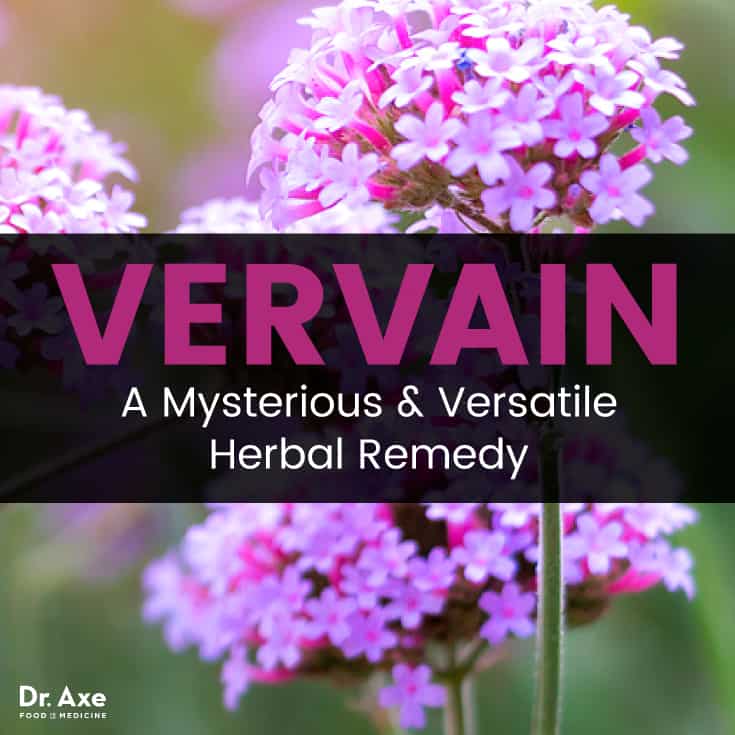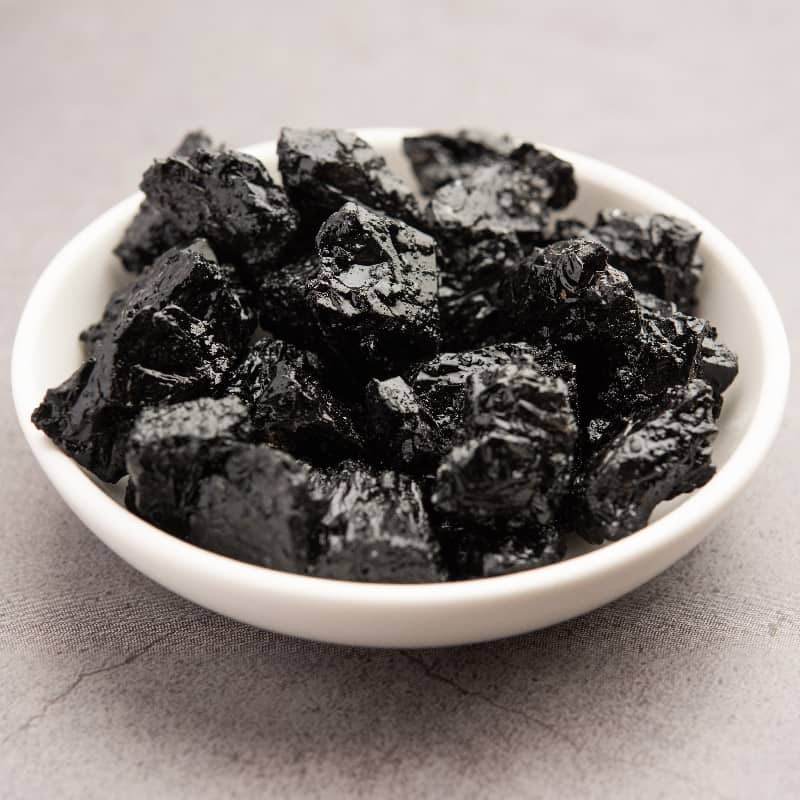This Dr. Axe content is medically reviewed or fact checked to ensure factually accurate information.
With strict editorial sourcing guidelines, we only link to academic research institutions, reputable media sites and, when research is available, medically peer-reviewed studies. Note that the numbers in parentheses (1, 2, etc.) are clickable links to these studies.
The information in our articles is NOT intended to replace a one-on-one relationship with a qualified health care professional and is not intended as medical advice.
This article is based on scientific evidence, written by experts and fact checked by our trained editorial staff. Note that the numbers in parentheses (1, 2, etc.) are clickable links to medically peer-reviewed studies.
Our team includes licensed nutritionists and dietitians, certified health education specialists, as well as certified strength and conditioning specialists, personal trainers and corrective exercise specialists. Our team aims to be not only thorough with its research, but also objective and unbiased.
The information in our articles is NOT intended to replace a one-on-one relationship with a qualified health care professional and is not intended as medical advice.
Vervain: 5 Benefits of a Versatile Herb
September 15, 2017

The vervain plant is a lesser-known herbal remedy, but it has a lengthy history of medicinal use when it comes to a variety of systems in the body. In traditional herbal medicine, it has been used to treat headaches, insomnia, depression, anxiety, kidney stones, gout, jaundice and more. It also has been used to improve lactation for nursing mothers and as a natural treatment for painful menstruation. (1)
Does vervain have magical properties? If you start researching this herb, you’ll see some pretty interesting information come up, even including the suggestion that it has magical powers. Some sources also say that vervain was used on Jesus’ wounds after he was removed from the cross, which is why “herb of the cross” is one of its many nicknames. (2)
Let’s take a look at how traditional medicine has used vervain through the years, as well as what scientific studies have revealed about its medicinal powers to date. I’ll also tell you about the different forms of Verbena officinalis. You may even want to try growing this herb in your own garden.
Vervain Plant Origin
Vervain is an herb that goes by quite a few other common names including Simpler’s Joy, Enchanter’s Plant, Herb of the Cross, Juno’s Tears, Pigeon’s Grass, Pigeonweed, Herb of Grace, Wild Hyssop, Iron-weed, Wild Verbena, and Indian Hyssop. Vervain’s botanical name is Verbena officinalis, which is often what it’s called in scientific research.
Vervain belongs to the plant family Verbenacea, not to be confused with lemon verbena. Lemon verbena is a completely different plant, but lemon verbena and vervain are in the same plant family. There are also varieties of vervain, including blue vervain (Verbena hastata) and white vervain (Verbena urticifolia).
What does vervain look like? It’s a slender perennial plant with toothed leaves and small, pale lilac-colored flowers on leafless spikes. Where does it grow? Vervain is likely native to Europe, specifically the Mediterranean region, but it has been naturalized to other parts of the world, including North America. (3)
The aerial portions (above-ground plant parts) of Verbena officinalis are used for medicinal purposes. These parts — namely the leaves and flowers — are known to contain active plant components, including glycosides (verbenin), alkaloids, tannins, bitter principles and volatile oil. These chemical plant compounds give vervain its antispasmodic, antipyretic (fever reducing) and diuretic abilities. (4)
5 Health Benefits of Vervain
Traditional uses of this herb are many, but what have scientific studies shown when it comes to vervain benefits? Let’s take a look!
1. Anti-Inflammatory
As I often mention, inflammation is at the root of most diseases. When you can decrease inflammation in the body, you can improve so many different common, chronic and even major health concerns. One of vervain’s top benefits is its ability to decrease inflammation both externally and internally.
Research published in the international journal Planta Medica looked at the effects of a number of vervain extracts (extracted in various ways) when given orally to animal subjects. The researchers found that all of the extracts of vervain “induce a remarkable anti-inflammatory activity.” In addition, the extracts demonstrated an ability to decrease gastrointestinal damage. (5)
Another study published in the Journal of Ethnopharmacology shows that vervain can provide anti-inflammatory, as well as pain-relieving, effects when applied topically. (6)
2. Anti-Anxiety Relaxant
Research published in 2016 looked at the possible positive effects of vervain on the nervous system. The study used animal subjects. Researchers found that crude extract of vervain improved seizure responses. It also decreased how long it took to fall asleep while increasing the duration of sleep for the subjects. Overall the study concludes that their results “indicate that Verbena officinalis possess anticonvulsant, anxiolytic and sedative activities, which provides scientific background for its medicinal application in various neurological ailments, such as epilepsy, anxiety, and insomnia.” (7)
3. Boosts Gum Health
For centuries, vervain has been used to improve gum health. For example, the early Celtic people used it in a mouth wash to help their gum problems. Combine 2 tablespoons of vervain with 1 cup of boiling water. Let it steep (like a tea) and then wait for it to cool down. It can then be used as a mouthwash. (8)
Is there actually any science to back up using a vervain mouthwash to boost gum health? In fact, there is. A double-blind randomized clinical trial published in 2016 looked at the effects of a vervain decoction (basically a vervain mouthwash) on patients with chronic generalized gingivitis, which is a form of gum disease. The subjects all brushed and flossed their teeth. The test group also rinsed their mouths with the vervain mouthwash. The results were impressive — the vervain test group decreased their scores on both the Gingival Index (GI) and Plaque Index (PI), which is a good thing since the lower the scores on these indexes, the healthier the gums. Overall, the results indicated to the researchers vervain’s ability to improve chronic generalized gingivitis with no negative side effects. (9)

4. Antimicrobial and Antibacterial
Studies have shown that Verbena officinalis possesses both antibacterial and antimicrobial abilities. Something that is antibacterial can kill bacteria or prevent the development of bacteria while antimicrobial means that a substance can kill and prevent the spread of bacteria as well as fungi and certain viruses. A scientific study published in 2016 in the Journal of Medicinal Food looked at vervain essential oil as a possible alternative to traditional chemical pesticides. They found that the essential oil of vervain was successfully able to stop the growth of some specific unwanted plant and human pathogens in a dose-dependent manner. (10)
It’s important for scientists to look into natural antibiotic alternatives since antibiotic resistance is becoming more and more of a problem these days. Another study from 2017 explored the effects of therapies combining antibiotics and four medicinal herbs including vervain on methicillin-resistant Staphylococcus aureus (MRSA). More studies are needed, but the researchers found that Verbena officinalis is an antimicrobial and antibacterial herb containing bioactive ingredients that may have potential in helping to fight against drug-resistant infections like MRSA. (11)
5. Cardioprotective
Vervain has been shown to contain a naturally occurring plant glycoside called verbenalin or cornin. A 2016 study isolated this cornin from the fruit of the plant to look at its possible protective effects against myocardial ischemia, which is when blood flow is reduced to the heart due to a partial or complete blockage of the heart’s arteries. The researchers found that the animal subjects treated with cornin (30 milligrams per kilogram via an IV) exhibited that their hearts were protected from injury due to myocardial ischemia. Based on the data, the researchers believe that the cornin found in Verbena officinalis has cardioprotective effects due to the fact that it increases the expression of compounds in the body that play a key role in cellular survival pathways. (12)
History & Interesting Facts
Vervain has a long history of being revered by many different cultures and peoples including the Druids, Persians, Egyptians, Greeks, Romans, and worshippers of Thor in Scandinavia.
Back in ancient Egypt, it became known as a divine herb that was believed to come from the tears of the goddess Isis when she wept over the death of the god Osiris. The Romans and Greeks also believed that it was a highly sacred and holy plant, which is why they used vervain branches to purify their temple altars. (13)
The Greek physician, Hippocrates, is also said to have recommended Verbena officinalis for fever and plague. (14)
The roots of vervain were used as a diuretic by the Aztecs who referred to the herb as “medicine for urinating.” Various Native American tribes employed it as a natural treatment for headaches, insomnia and circulatory issues. (15)
How to Use and Grow Vervain
If you’re wondering where to buy vervain supplements or the raw herb, they can both be found at health stores, as well as online. Verbena officinalis is available in various forms, including powder, tincture, capsules, tea, and flower essence. It can be taken as a liquid tincture at a dosage of 1 to 2 teaspoons three times per day. (16) The essential oil is pretty hard to find, but it can be found online and sometimes it’s available at specialty stores.
Vervain tea can also be made from the flower and leaves by adding 1 to 2 teaspoons (2 to 4 grams) to a pint of boiled water. To get the most from this herbal tea, you should allow it to steep covered for 10 to 15 minutes. When using it for medicinal purposes, the common recommendation is 1 to 3 cups of tea per day. To help with sleep trouble, 1 cup about 30 minutes before bed can be helpful. Some people enjoying adding raw honey or lemon to their vervain tea.
Verbena officinalis is a medicinal herb that you may want to consider adding to your current herb garden. If you’re interested in possibly including it in your garden lineup, it’s helpful to know that this herb grows best in full sun with well-drained soil. It can survive in partial shade as well, but it definitely still needs to be well-drained. Verbena officinalis plants and seeds can be found at some garden stores or online.
Possible Side Effects, Interactions and Caution
Verbena officinalis is not generally recommended for pregnant women because it is a known uterine stimulant. However, traditionally speaking, it has been taken during the last two weeks of pregnancy to encourage labor. Anyone who is pregnant or has any ongoing health issues should only take Verbena officinalis under the direction of a trained professional. (17)
Verbena officinalis does not currently have any well-documented interactions or adverse side effects, but it should not be taken in large doses. (18) Always speak with your doctor before combining any medications with vervain.
Blue vervain (Verbena hastata) is known to interfere with blood pressure medication. It may also interact with hormone therapy. Large doses will cause diarrhea and vomiting. (19)
If you haven’t used herbal remedies before, teas can be a great way to benefit from herbs in small doses. If you’re not a fan of the taste of Verbena officinalis tea, then you can also find it in many other forms. Of course, always speak to a professional if you are unsure of how to use an herbal remedy.
Final Thoughts
Vervain has a really intriguing and mystical history that dates back thousands of years. Sometimes long-held traditional uses of herbs don’t mach up with current science. But, as you can see, research has actually backed up many of its historical uses. Thanks to its antibacterial, antimicrobial and anti-inflammatory properties, Verbena officinalis may improve gum health. It’s also a natural sedative and relaxant that many people find useful for sleep troubles and anxiety.
Read Next: 5 Horehound Respiratory & Digestive Benefits
[webinarCta web=”eot”]










